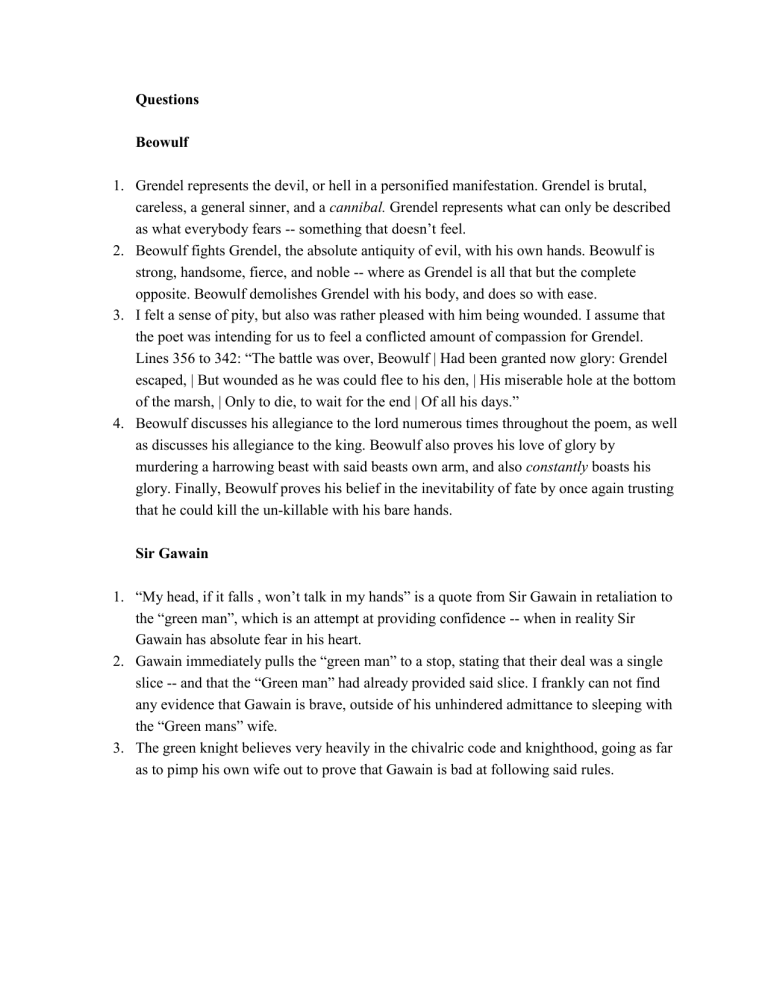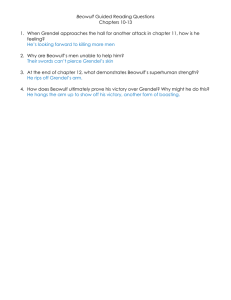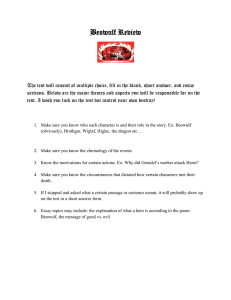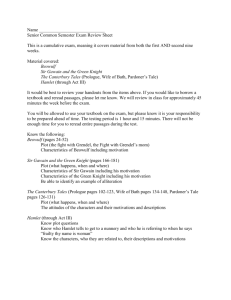Beowulf & Sir Gawain Analysis: Themes & Characters
advertisement

Questions Beowulf 1. Grendel represents the devil, or hell in a personified manifestation. Grendel is brutal, careless, a general sinner, and a cannibal. Grendel represents what can only be described as what everybody fears -- something that doesn’t feel. 2. Beowulf fights Grendel, the absolute antiquity of evil, with his own hands. Beowulf is strong, handsome, fierce, and noble -- where as Grendel is all that but the complete opposite. Beowulf demolishes Grendel with his body, and does so with ease. 3. I felt a sense of pity, but also was rather pleased with him being wounded. I assume that the poet was intending for us to feel a conflicted amount of compassion for Grendel. Lines 356 to 342: “The battle was over, Beowulf | Had been granted now glory: Grendel escaped, | But wounded as he was could flee to his den, | His miserable hole at the bottom of the marsh, | Only to die, to wait for the end | Of all his days.” 4. Beowulf discusses his allegiance to the lord numerous times throughout the poem, as well as discusses his allegiance to the king. Beowulf also proves his love of glory by murdering a harrowing beast with said beasts own arm, and also constantly boasts his glory. Finally, Beowulf proves his belief in the inevitability of fate by once again trusting that he could kill the un-killable with his bare hands. Sir Gawain 1. “My head, if it falls , won’t talk in my hands” is a quote from Sir Gawain in retaliation to the “green man”, which is an attempt at providing confidence -- when in reality Sir Gawain has absolute fear in his heart. 2. Gawain immediately pulls the “green man” to a stop, stating that their deal was a single slice -- and that the “Green man” had already provided said slice. I frankly can not find any evidence that Gawain is brave, outside of his unhindered admittance to sleeping with the “Green mans” wife. 3. The green knight believes very heavily in the chivalric code and knighthood, going as far as to pimp his own wife out to prove that Gawain is bad at following said rules.







